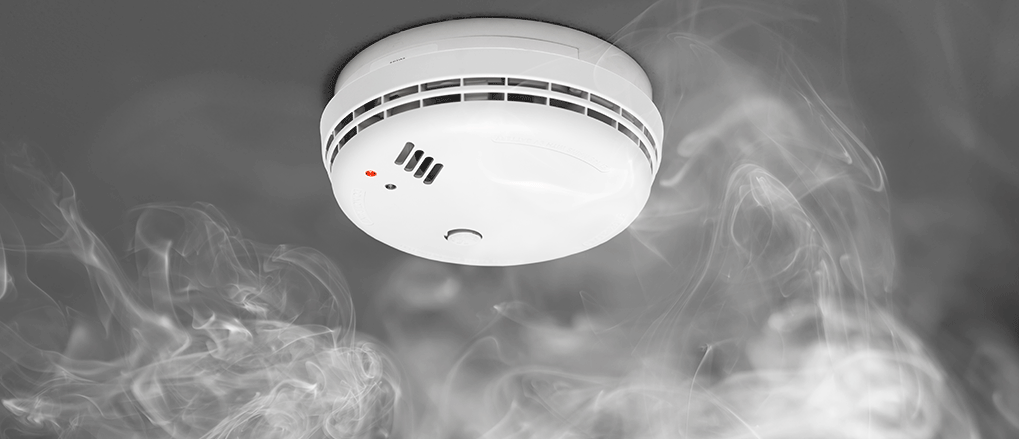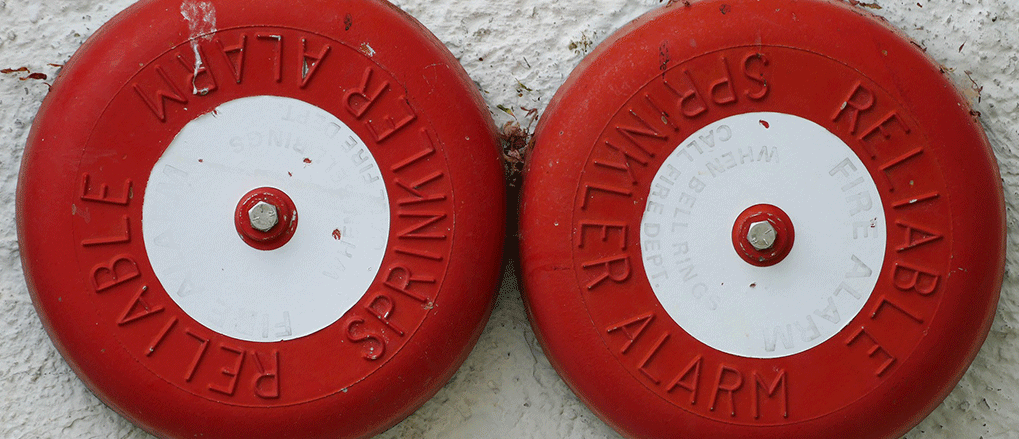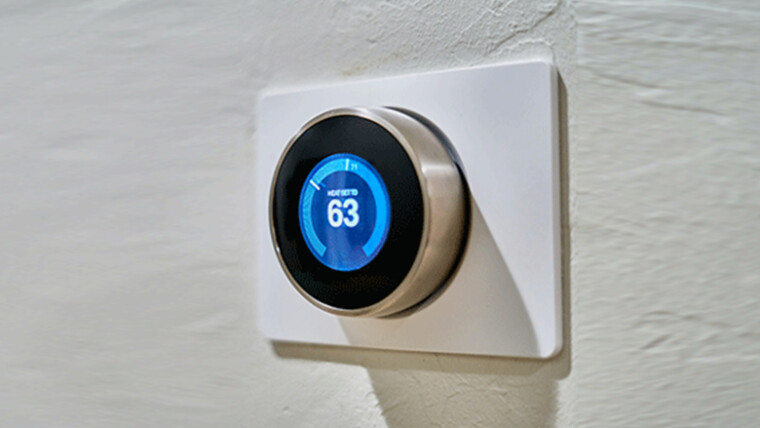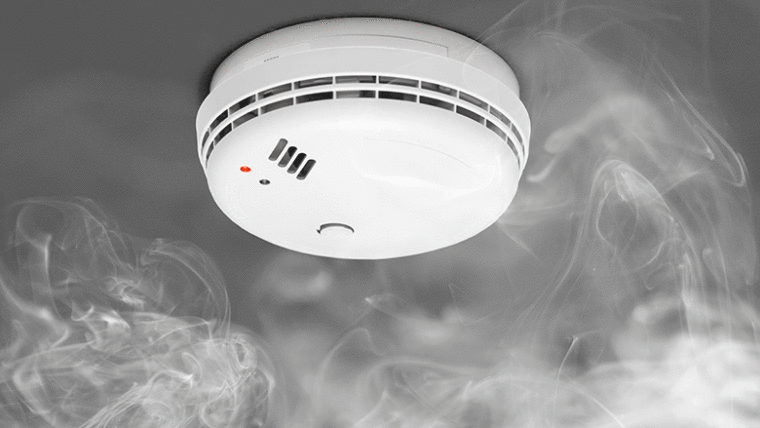Perhaps one of the most important security measures you can have is a fire alarm system. Fires can happen anywhere, and without a proper fire alarm system, you can lose everything you own. The danger to the lives of your loved ones and you cannot be diminished.
Before you can start thinking about other security systems, you need to have a good fire alarm system. Of course, it makes sense to guard against intruders and things of that nature, but if you do not have things in place to secure your property in the event of a fire, you may not have anything to protect.
A fire alarm system is considered the first order of any good security system. Since fires can happen due to any number of causes, a fire alarm system makes sure your property and people are safe above all else.
What is a fire alarm system? What are the features of a modern fire alarm system? And how do you choose the best fire alarm system for your home or business? This guide will talk you through the basics of fire alarm systems so you know how to make your property safe.
What is a fire alarm system?
A fire alarm system is designed to alert you and emergency services in the event of a fire. Fires are extremely unpredictable. A fire alarm system makes it possible to alert people in the building early enough to get out safely. They are also designed to alert the fire department so that response times are reduced.
The sooner emergency services can be alerted, the better the chance they have of stopping a fire before it does any damage. And the sooner people in the building or on the premises are alerted of an emergency, the better chance they have of escaping the dangers of fire.
A good fire alarm system consists of two main components. A sound alarm for people to evacuate, and a remote signal sent to the fire department. The old alarm bells were fine for getting people out of the building. But a modern fire alarm system needs to call emergency responders. Early action in the event of a fire is the best way to prevent injury and catastrophic damage.
Benefits of a fire alarm system

The primary benefit of a fire alarm system is to alert you, your people, and the authorities of a fire. But some specific benefits are worth your attention.
Avoid smoke inhalation
The leading cause of death in fires is not the fire itself, but smoke inhalation as a result of the fire. The smoke of a structure fire contains particulates, chemicals, and gases, many of which are toxic. Smoke from a fire can cause irritation or swelling in the respiratory system, respiratory illness, damage to skin and membranes. Smoke can ultimately cause suffocation. The smoke from structure fires gives off things like carbon monoxide, ammonia, hydrogen cyanide, and many other extremely toxic gases. Fire alarm systems detect smoke before an actual fire breaks out so people can evacuate safely ahead of the dangers of smoke inhalation.
Early fire detection
The best way to prevent large-scale damage from a fire is to top it before it grows. Fire alarm systems can detect the presence of smoke and fire well before it grows large enough to cause catastrophic damage. Early detection is the best way to keep people safe in the event of a fire. To evacuate to safety without injury, you need early detection to make sure exit ways are clear of fire and smoke. Early detection also makes it possible for firefighters to stop the fire before it grows.
Breaks on insurance
By installing a fire alarm system, you can save money. Insurance companies provide incentives to property owners to install fire alarm systems. They do this because early detection prevents costly damage to lives and property thereby reducing the cost of insurance claims. Check with your insurance carrier to find out what kind of breaks and incentives they offer for installing a fire alarm system.
Decreased risk of fire damage
Fire damage costs large amounts of money and large amounts of time to repair. A fire alarm system also minimizes the risk of damage to adjacent properties. A fire alarm system is a system of prevention. By providing an early alert process in the event of a fire, you reduce damage and injury. The faster you get a response in the event of a fire, the faster you get your business back in order.
Components of a fire alarm system
Fire alarm systems consist of some basic components that will be constant in all systems. The way these components work will depend on the individual system.
Fire alarm initiating device
This is essentially the part of the system that activates the alarm and the rest of the system. There are two basic types of alarm initiating devices:
- Manual: These are things like pull stations, glass breaking stations, or simple buttons that will activate the alarm. These are marked in conspicuous places in any building.
- Automatic: These are devices that automatically trigger the alarm like smoke detectors, flame detectors, and heat sensors. As soon as smoke, fire, or excessive heat are detected, these devices will initiate the entire alarm system.
Notification devices
These are devices that notify occupants of the building that the alarm has been activated. They also notify emergency services so they can respond. Notification devices include:
- Bells
- Strobes
- Horns
- Chimes
Alarm control panel
The fire alarm control panel is the central hub of the alarm system. This is effectively the brain of the system. It manages all the other devices in the chain. The control panel detects all notifications and alarm signals. This is the part of the system that can be monitored and controlled from a central site. Control panels also detect power outages and interruptions so you can troubleshoot the system.
Primary power supply
This is simply the main power source in your building or structure. Generally, these are 120- or 240-volt power sources.
Backup power supply
You cannot afford to let your fire alarm system be disabled by a power outage. Therefore, fire alarm systems come with a backup power supply. In the event of a power outage, the fire alarm system will automatically switch over to battery power. Generally, an 8 or 8-volt battery will keep the system operating.
States of a fire alarm system

The fire alarm system will display the three main states of its operation. A fire alarm system is not a purely passive system. It actively remains engaged even when nothing is wrong. The three states of your fire alarm system include:
Normal
This is indicated on the central control panel. The system will demonstrate that it is operating correctly and there are no indications of a fire or any other problem.
Alarm
The alarm will signify that the system has detected smoke, flames, or heat somewhere in the chain. The central control panel can indicate where exactly the alarm was triggered. This allows emergency services to pinpoint the source of the fire.
Trouble
These are also on the central control panel. The trouble indicator lets you know there is a problem in the system itself. This can be a faulty detector, a power interruption in the system, or any other fault that could potentially compromise the effectiveness of the fire alarm system.
Types of fire alarm systems

Fire alarm systems can be quite sophisticated, but the basic model by which the systems work is fairly simple. Fire alarm systems come in three types:
Ionization
Ionization fire alarm systems work best for detecting actual flame. The alarm contains a small radioactive material that is positioned between two electronically charged plates. This creates a constant current of electrically charged air between the two plates. When smoke enters that space between the two plates it interrupts the electronic signal and triggers the alarm. These systems work fast and detect open flames before they become fires.
Photoelectric
This type of alarm is ideal for detecting smoldering fires. The smoke from these types of fires moves slower than that from open flames. A photoelectric fire alarm system sends a small beam of light into an area. When the light reflects on a sensor as a result of the smoke, it will trigger the alarm.
Combination
These fire alarm systems, as the name implies, utilize both ionization and photoelectric detectors. These provide maximum safety for your home or business and can detect any type of fire. This provides the most protection.
Which type of fire alarm system is best?
Certainly, the best system is the combination system since it will detect any source of potential fire before it becomes a serious threat to life or property. But this does not mean it is the best system for your needs. To decide on the best system for you, there are a few things to consider:
- Place of use: For homes and residential areas, you may not need the most sophisticated system. Simple smoke detectors in high-risk areas like kitchens will likely be enough. For commercial spaces, you will likely need a more advanced system that can detect fires from a variety of sources.
- Coverage area: Small, enclosed spaces do not need the same advanced detection systems as large commercial spaces.
- Installation: The ease of installation is something you should consider when you choose a fire alarm system. For example, battery-powered fire alarm systems are easy to install, and you can change the batteries without difficulties; this makes them a great choice for residential buildings. Hard-wired systems, on the other hand, are hard to install, but they are the best option for businesses because they are more reliable than battery-powered ones.
- Local temperature: Climate matters when choosing a fire alarm system. An especially warm climate can cause false alarms in a system that relies on heat detectors, for example.
- Codes and regulation: Local, state, and federal regulations will often determine which type of fire alarm system you need. Some regulations pertain specifically to residential and commercial properties. The National Fire Protection Association (NFPA) has laid down requirements that manufacturers should observe. For example, buildings with a capacity of 500 people must have auditory systems, and the volume of a fire alarm system should not exceed 110 decibels (dBA).
Fire alarm system FAQs
What is a fire alarm system?
A fire alarm system is designed to alert you and emergency services in the event of a fire. Fires are extremely unpredictable. A fire alarm system makes it possible to alert people in the building early enough to get out safely. They are also designed to alert the fire department so that response times are reduced.
What are the benefits of a fire alarm system?
Fire alarm systems reduce the risk of smoke inhalation, reduce response times to emergencies, reduce damage and injury, and provide breaks on insurance expenses.
What are the main types of fire alarm systems?
The three main fire alarm system types are ionization, photoelectric, and combination.
Circle Security Solutions Product Showcase
Do you have the required protection and certifications for your business’s fire alarm system? Do you conform to the local fire and building codes, central station monitoring, UL/ETL certifications, and runner response?
Circle Security Systems will install the most reliable and comprehensive systems available on the market today. Whether you have a large retail operation, warehouse, or small business, commercial fire protection, and life safety have to be your number one consideration.
We are ETL-listed and will provide the necessary CAD drawings and submittal packages required by all local municipalities. Worried about annual testing & certifications? We can handle all of that for your business, so you’ll always be up to code.
Circle Security Solutions employs state-of-the-art fire & smoke detection technology to provide South Florida residents with the best of the best residential fire systems.
We custom design a fire detection solution that keeps you, your family, and your belongings protected and safe. Your home will always be within fire code and pass any inspection.
Conclusion
In the simplest terms, a fire alarm system saves lives and saves your property. A fire alarm system also saves you money. The damage from fires can be astronomical. The fire itself does damage to property that is completely unpredictable. Smoke damage further aggravates the problems from fires.
Your priority is to keep people safe on and around your home or business. In the event of a fire, you want to make certain that you and your family can get out safely. If you own business property, you want to make sure your people are safe.
But once safety is taken care of, you need to protect your property from fire and smoke damage and the best way to do that is with a sound fire alarm system. Whether you are looking to protect your home or large business property, a fire alarm system comes before all other security measures.
Fire alarm systems can be as sophisticated as you need them to be. But all fire alarm systems come down to some simple procedures. Early detection means early action. The best way to deal with a fire is to prevent it from getting out of control. A fire alarm system keeps your home or business safe and saves you money.


